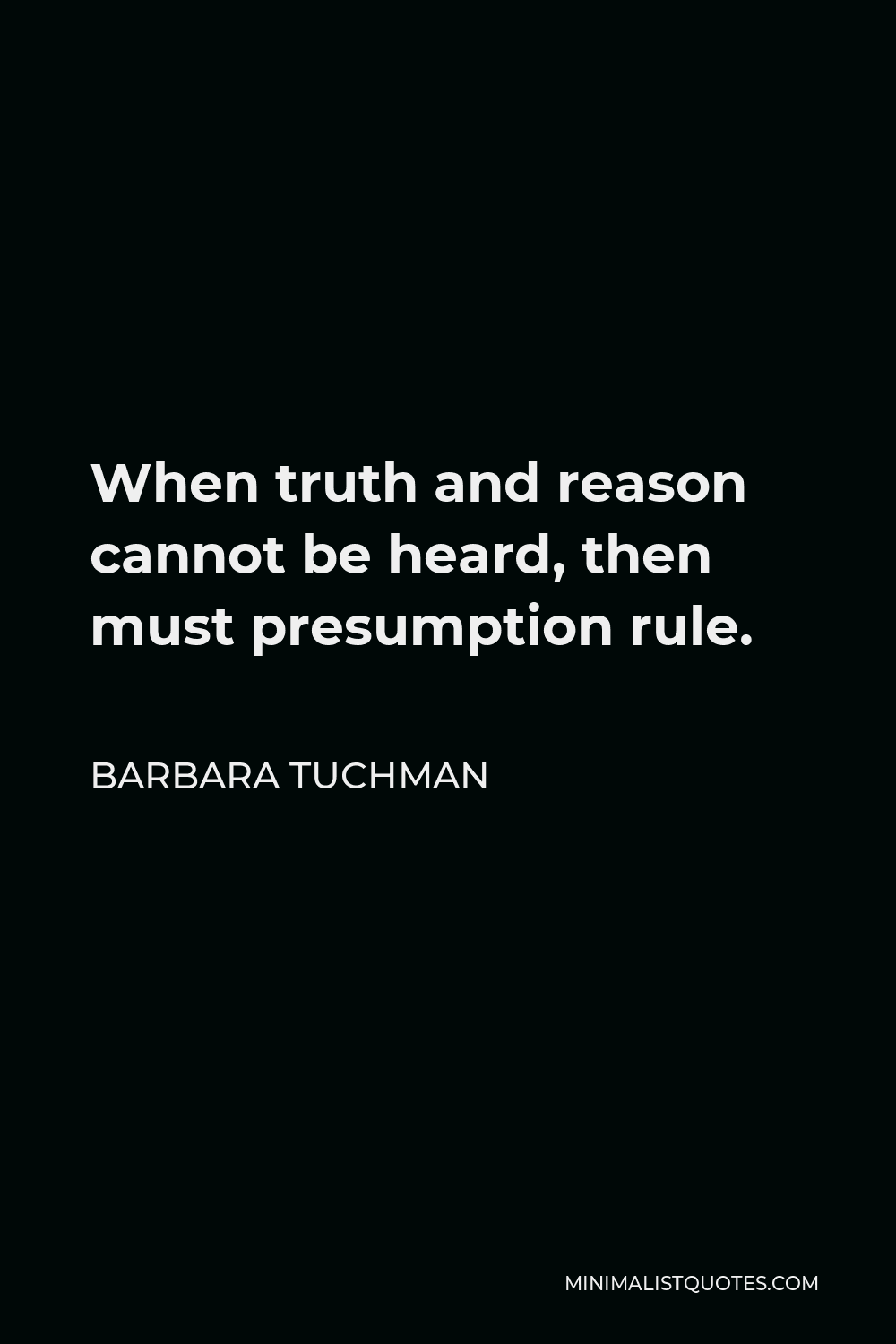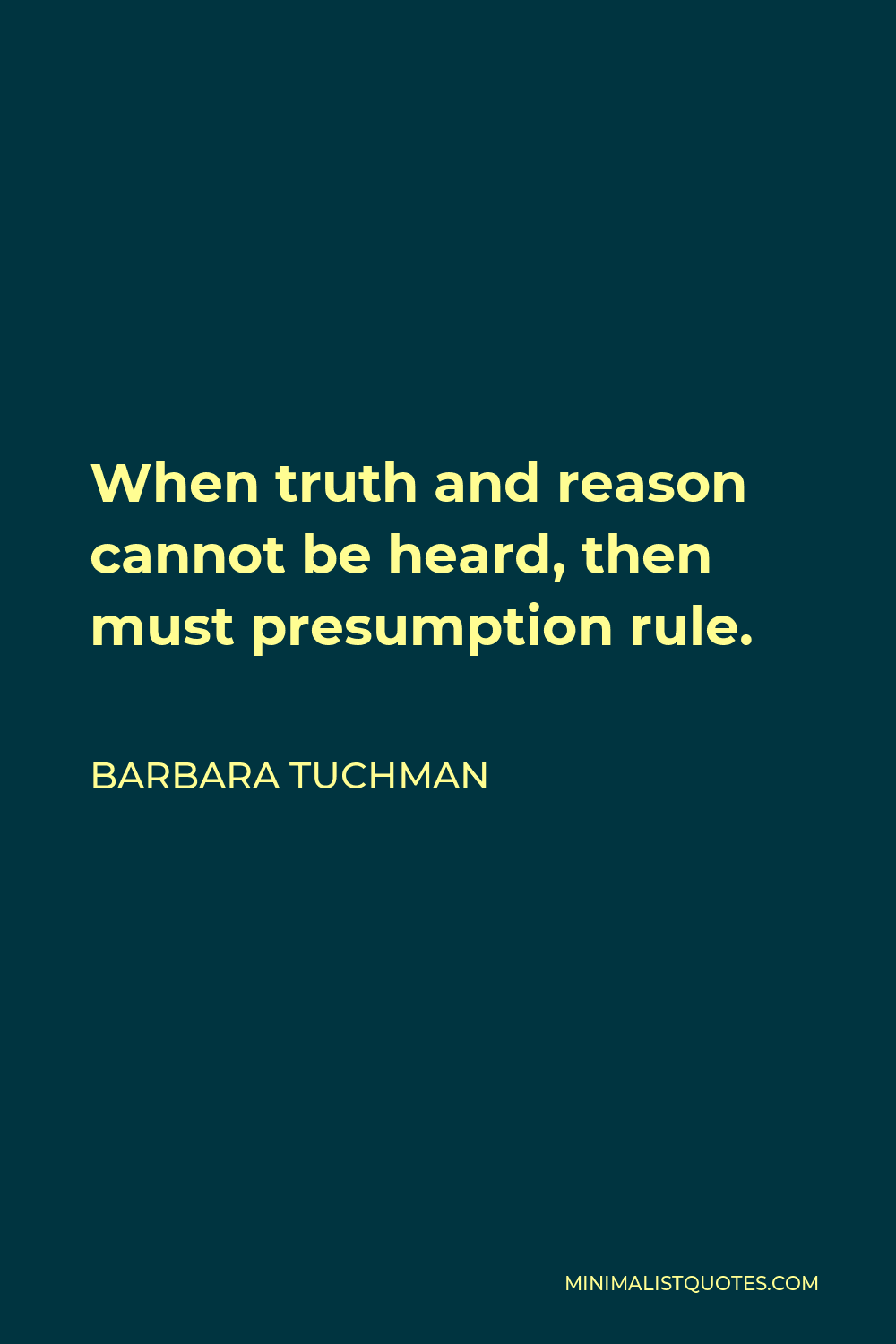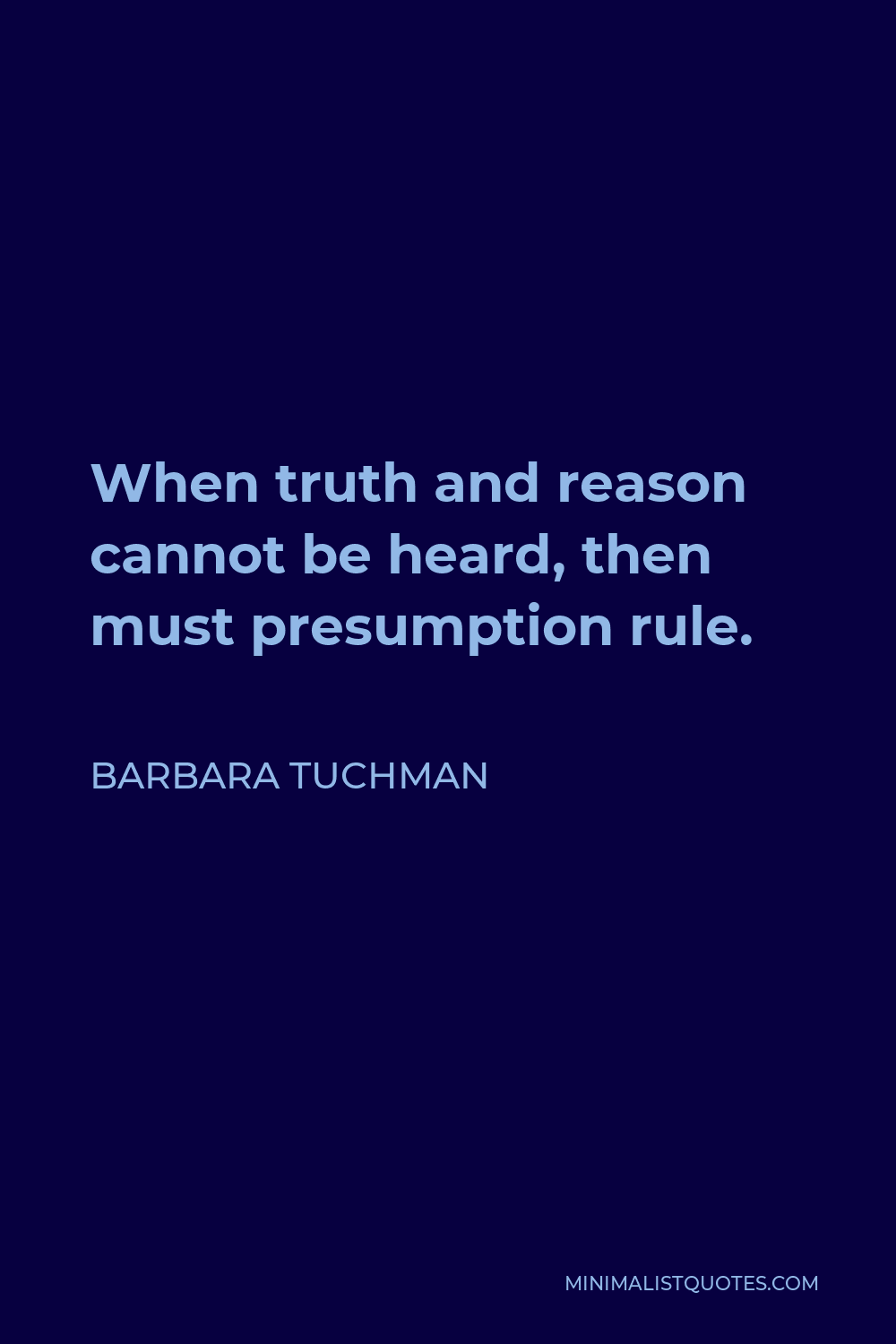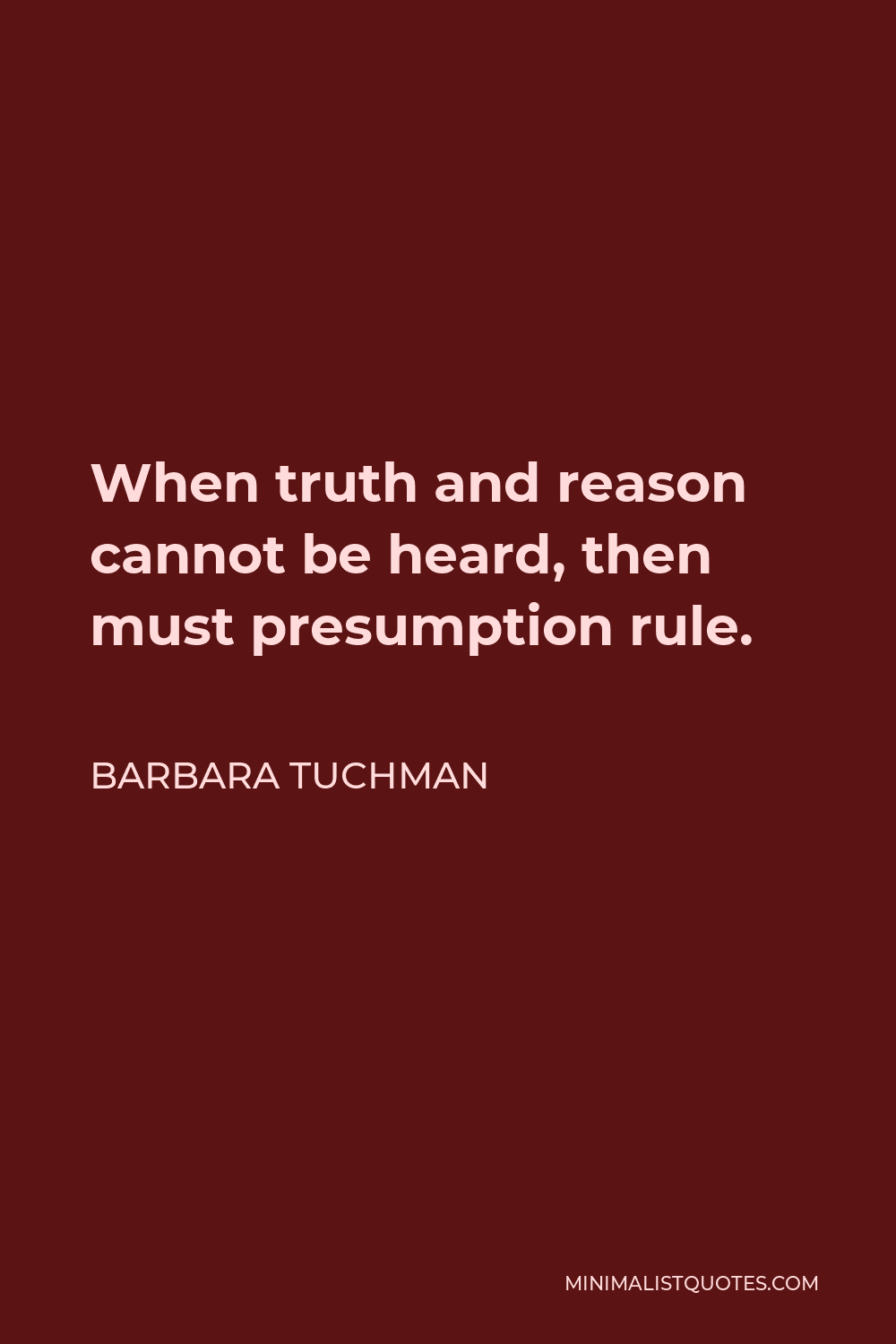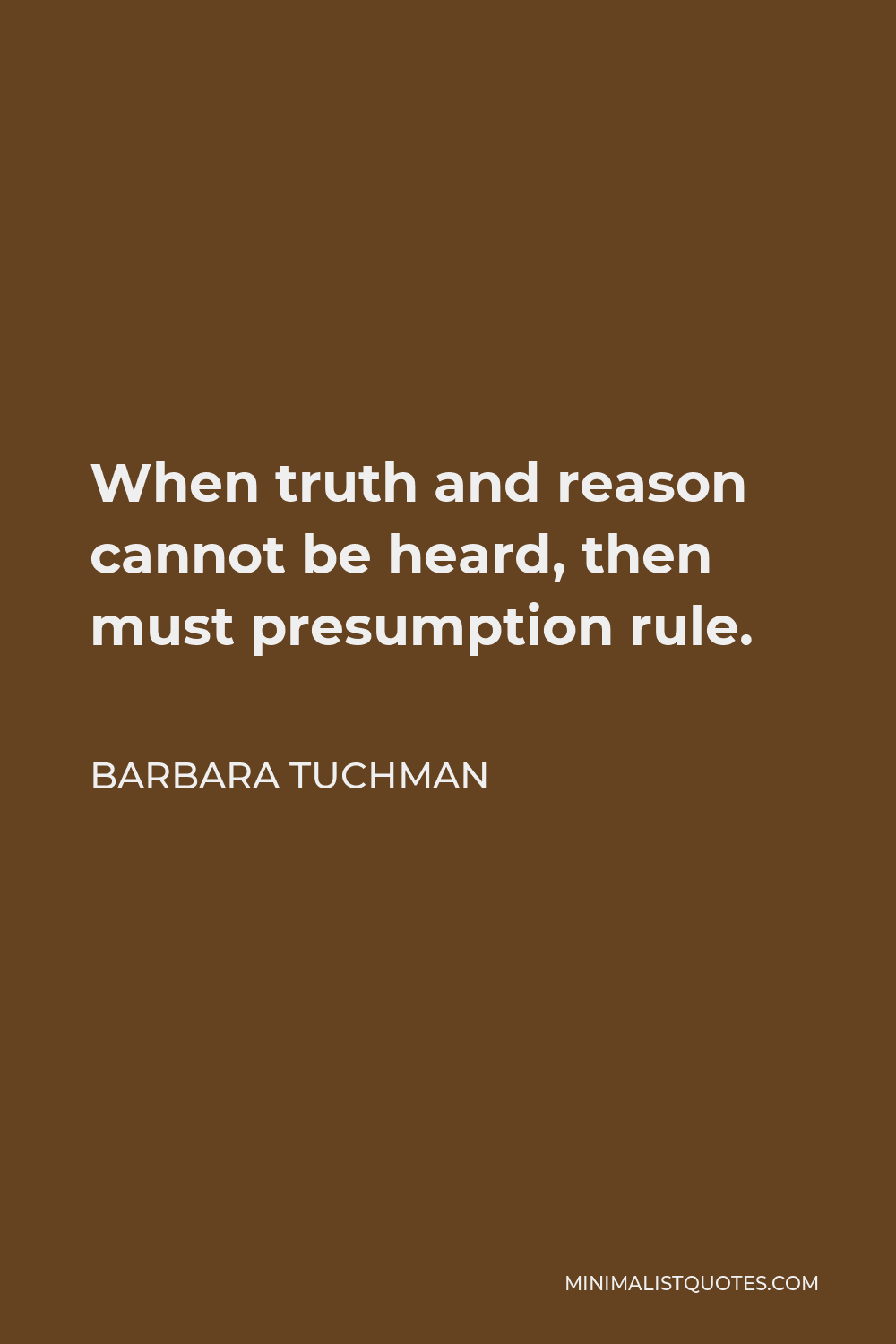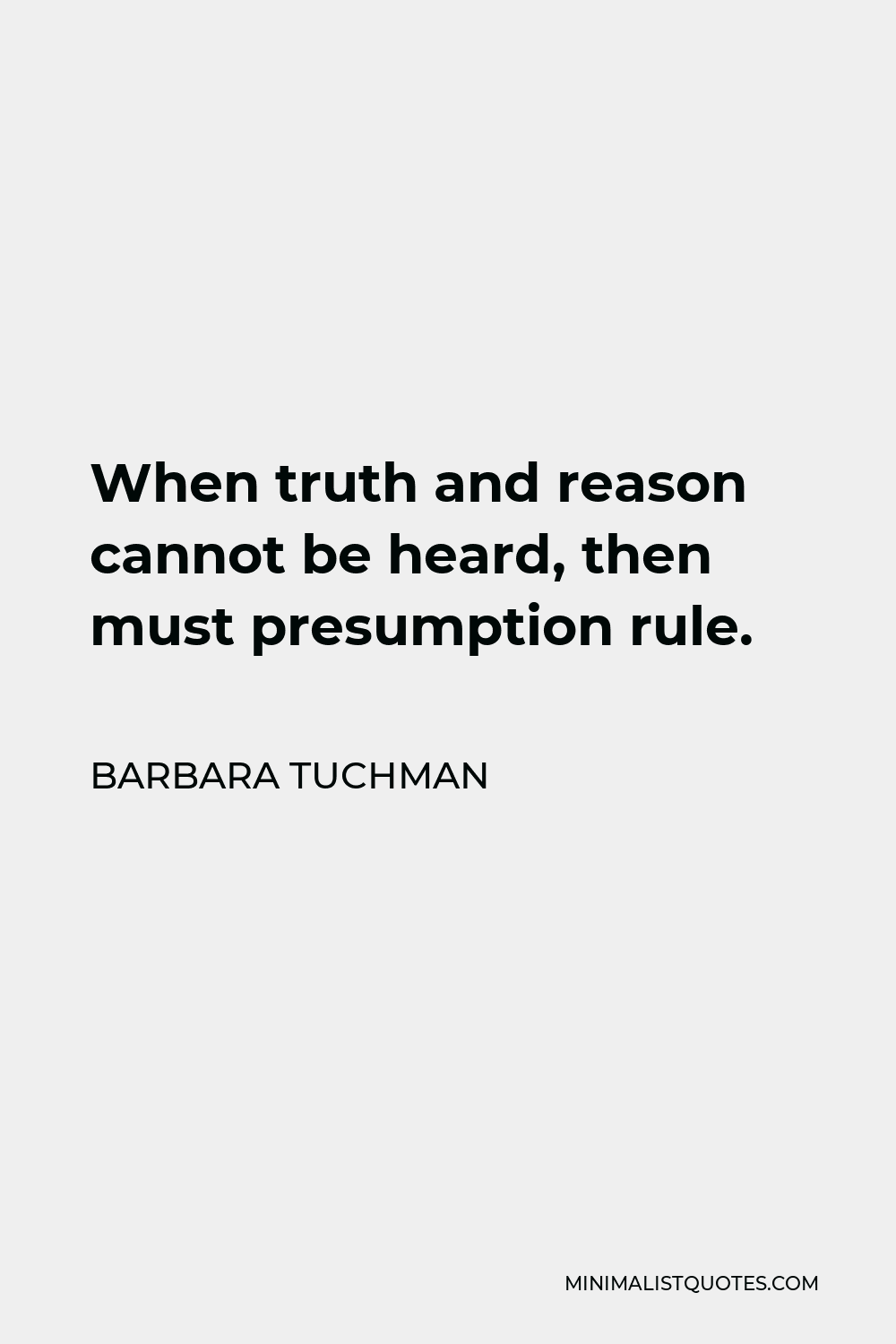The muffled tongue of Big Ben tolled nine by the clock as the cortege left the palace, but on history’s clock it was sunset, and the sun of the old world was setting in a dying blaze of splendor never to be seen again.
BARBARA TUCHMANWhen truth and reason cannot be heard, then must presumption rule.
More Barbara Tuchman Quotes
-





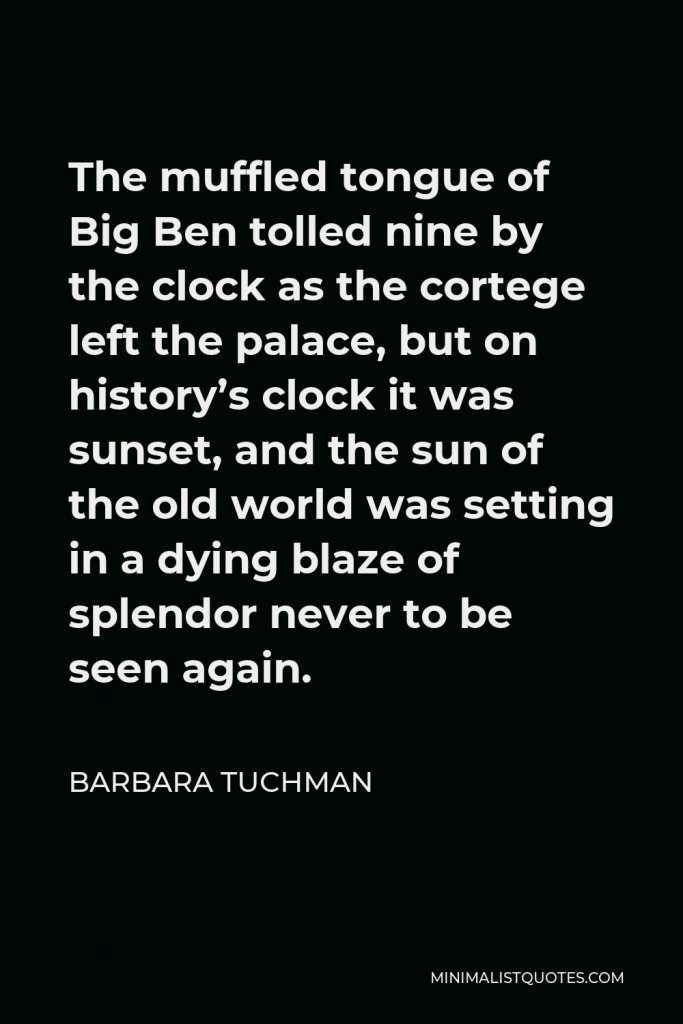

-





![Barbara Tuchman Quote - [T]he obverse of facile emotion in the 14th century was a general insensitivity to the spectacle of pain and death.](https://minimalistquotes.com/wp-content/uploads/2022/10/the-obverse-of-facile-emotion-in-the-14th-century--683x1024.jpg)

[T]he obverse of facile emotion in the 14th century was a general insensitivity to the spectacle of pain and death.
BARBARA TUCHMAN -





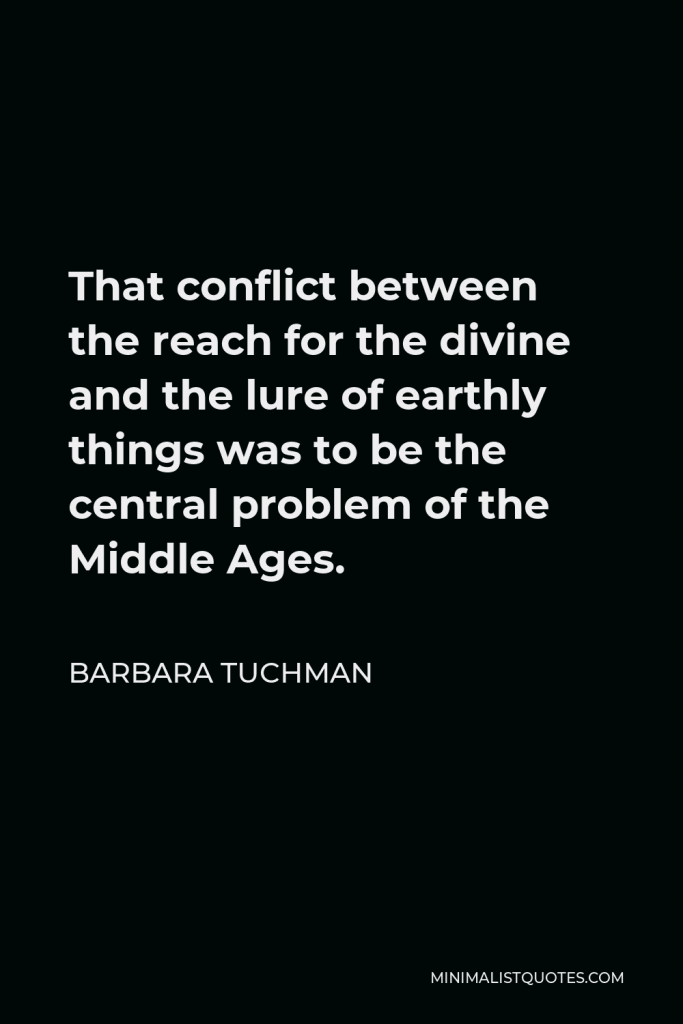

That conflict between the reach for the divine and the lure of earthly things was to be the central problem of the Middle Ages.
BARBARA TUCHMAN -





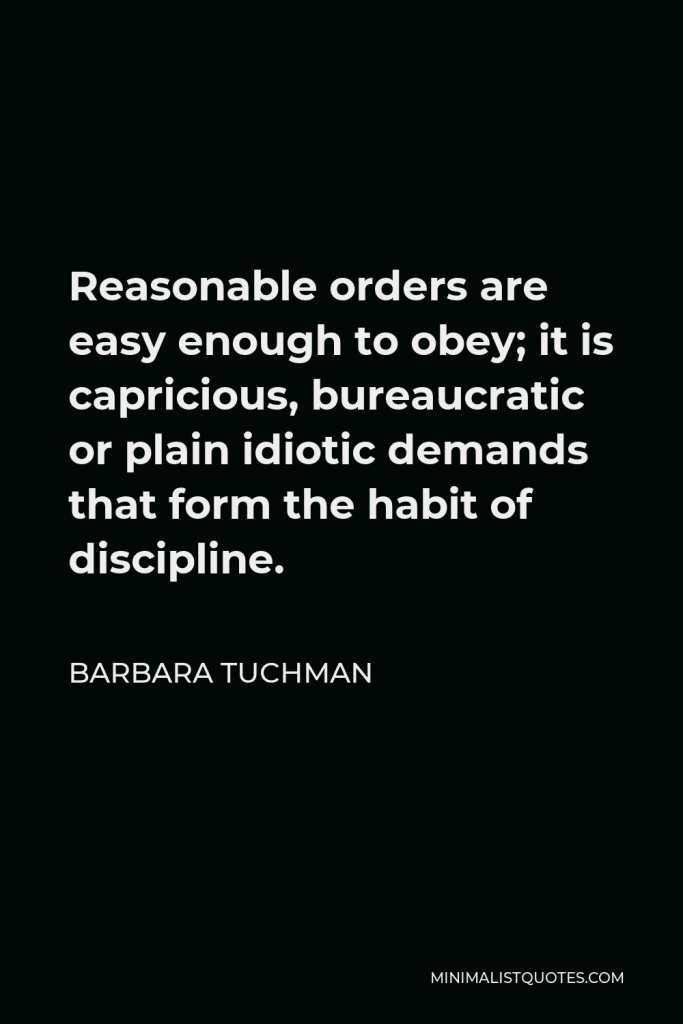

Reasonable orders are easy enough to obey; it is capricious, bureaucratic or plain idiotic demands that form the habit of discipline.
BARBARA TUCHMAN -





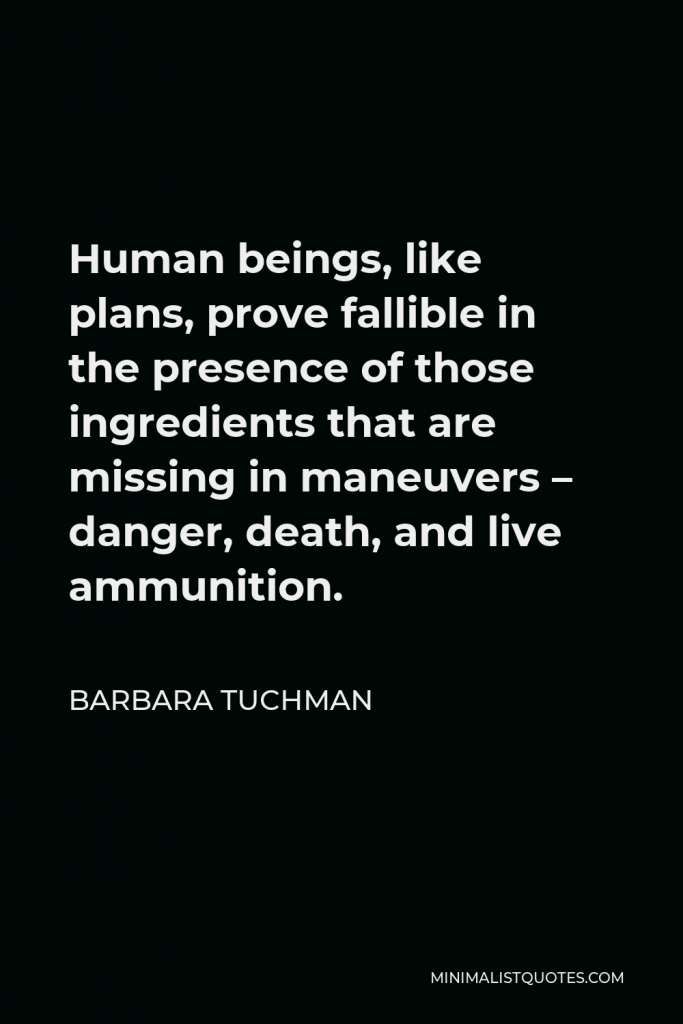

Human beings, like plans, prove fallible in the presence of those ingredients that are missing in maneuvers – danger, death, and live ammunition.
BARBARA TUCHMAN -





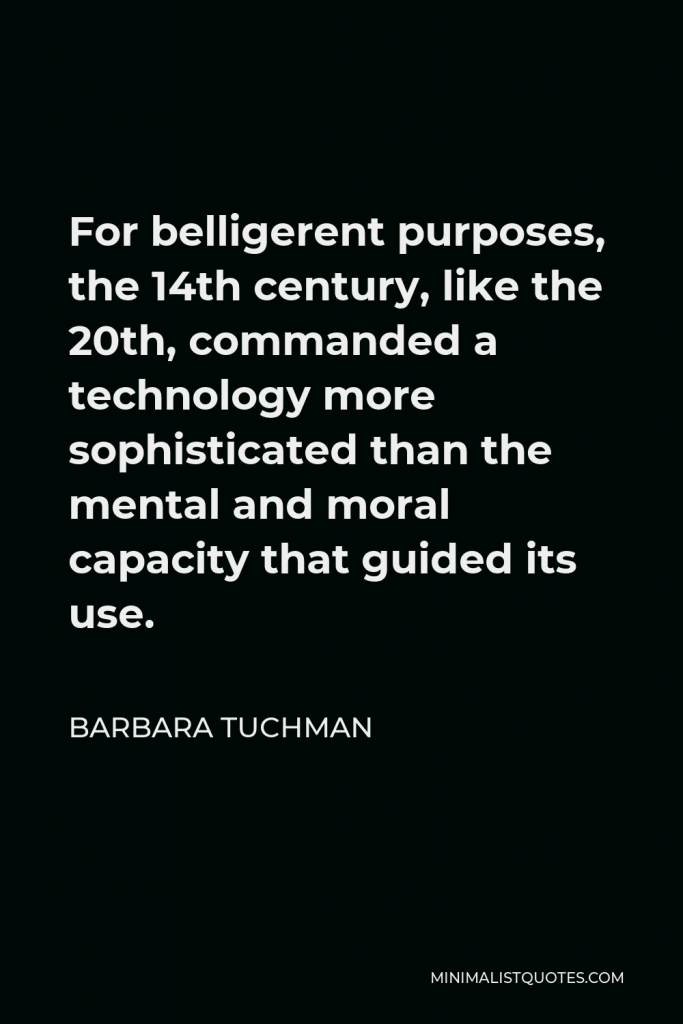

For belligerent purposes, the 14th century, like the 20th, commanded a technology more sophisticated than the mental and moral capacity that guided its use.
BARBARA TUCHMAN -





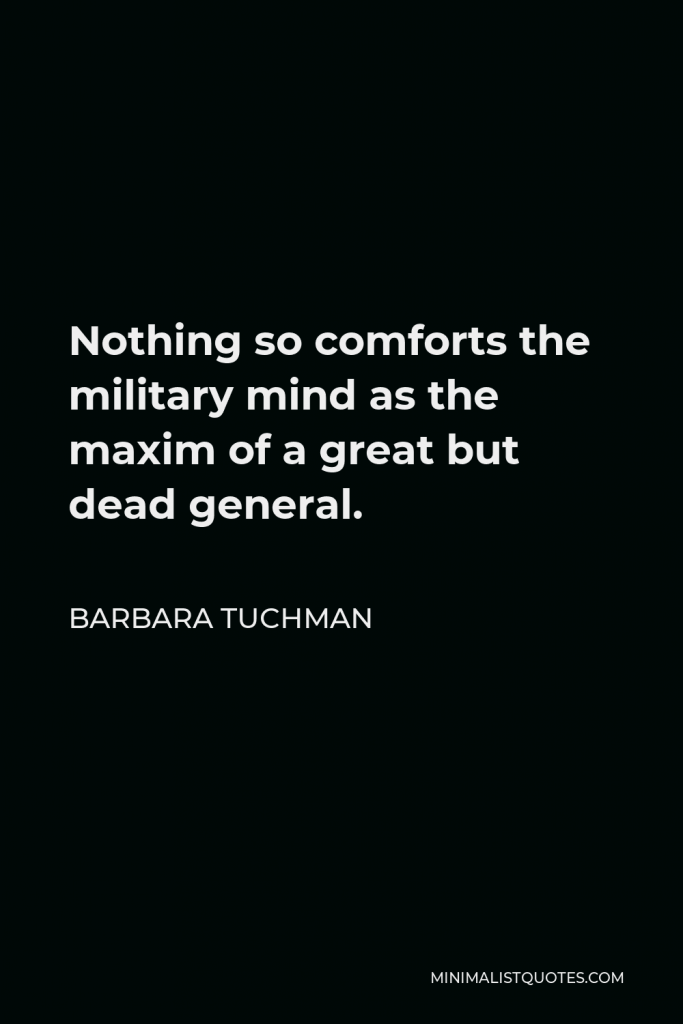

Nothing so comforts the military mind as the maxim of a great but dead general.
BARBARA TUCHMAN -





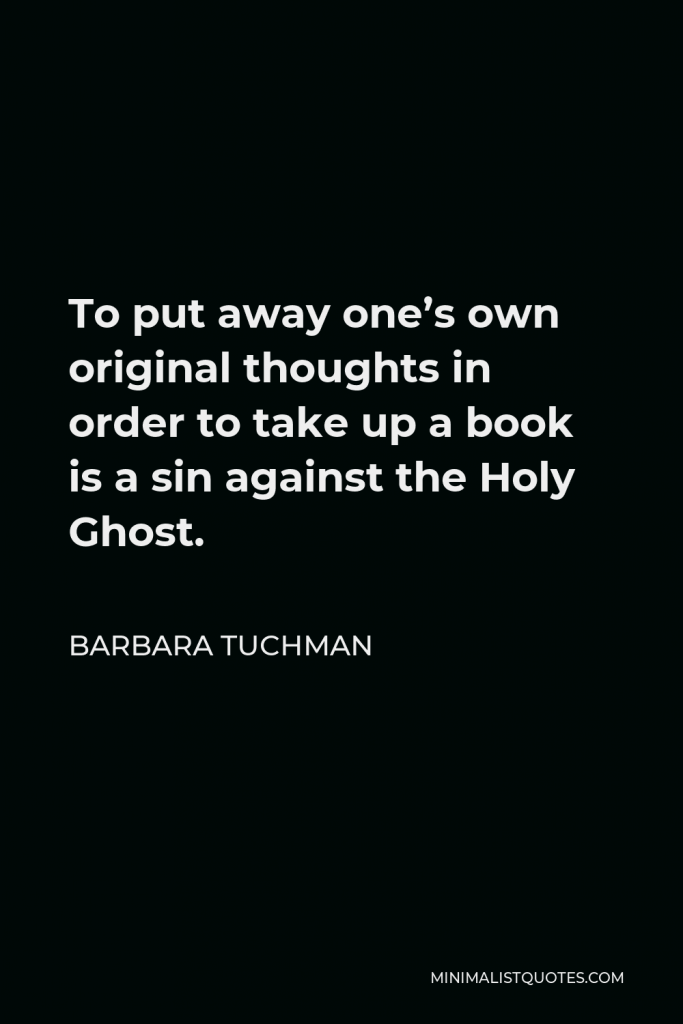

To put away one’s own original thoughts in order to take up a book is a sin against the Holy Ghost.
BARBARA TUCHMAN -







While husbands and lovers in the stories are of all kinds, ranging from sympathetic to disgusting, women are invariably deceivers: inconstant, unscrupulous, quarrelsome, querulous, lecherous, shameless, although not necessarily all of these at once.
BARBARA TUCHMAN -





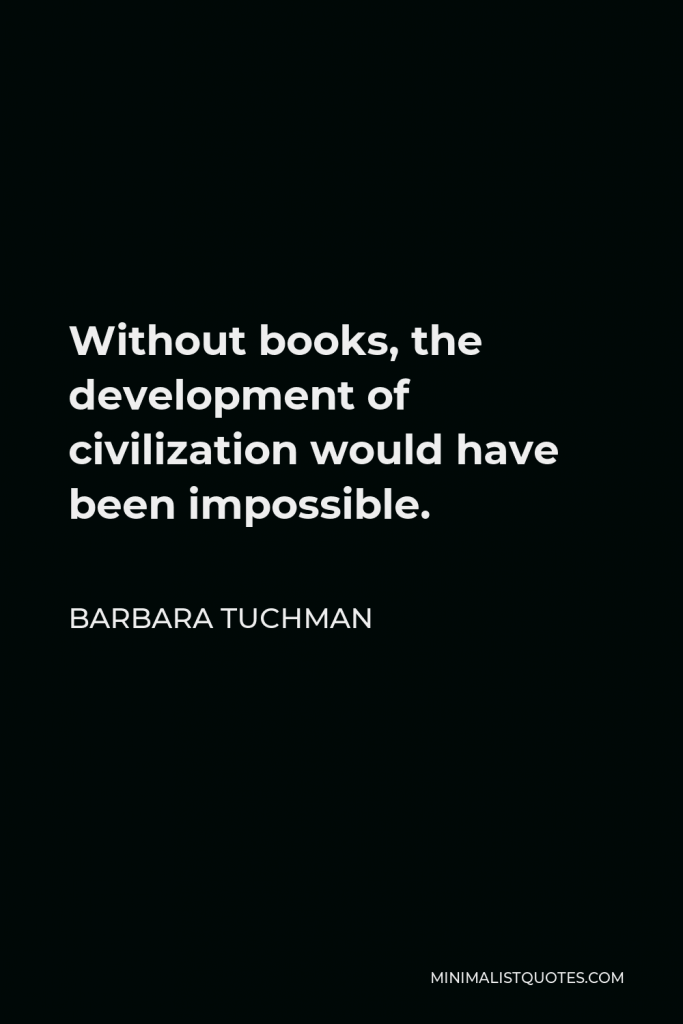

Without books, the development of civilization would have been impossible.
BARBARA TUCHMAN -






The fleet sailed to its war base in the North Sea, headed not so much for some rendezvous with glory as for rendezvous with discretion.
BARBARA TUCHMAN -





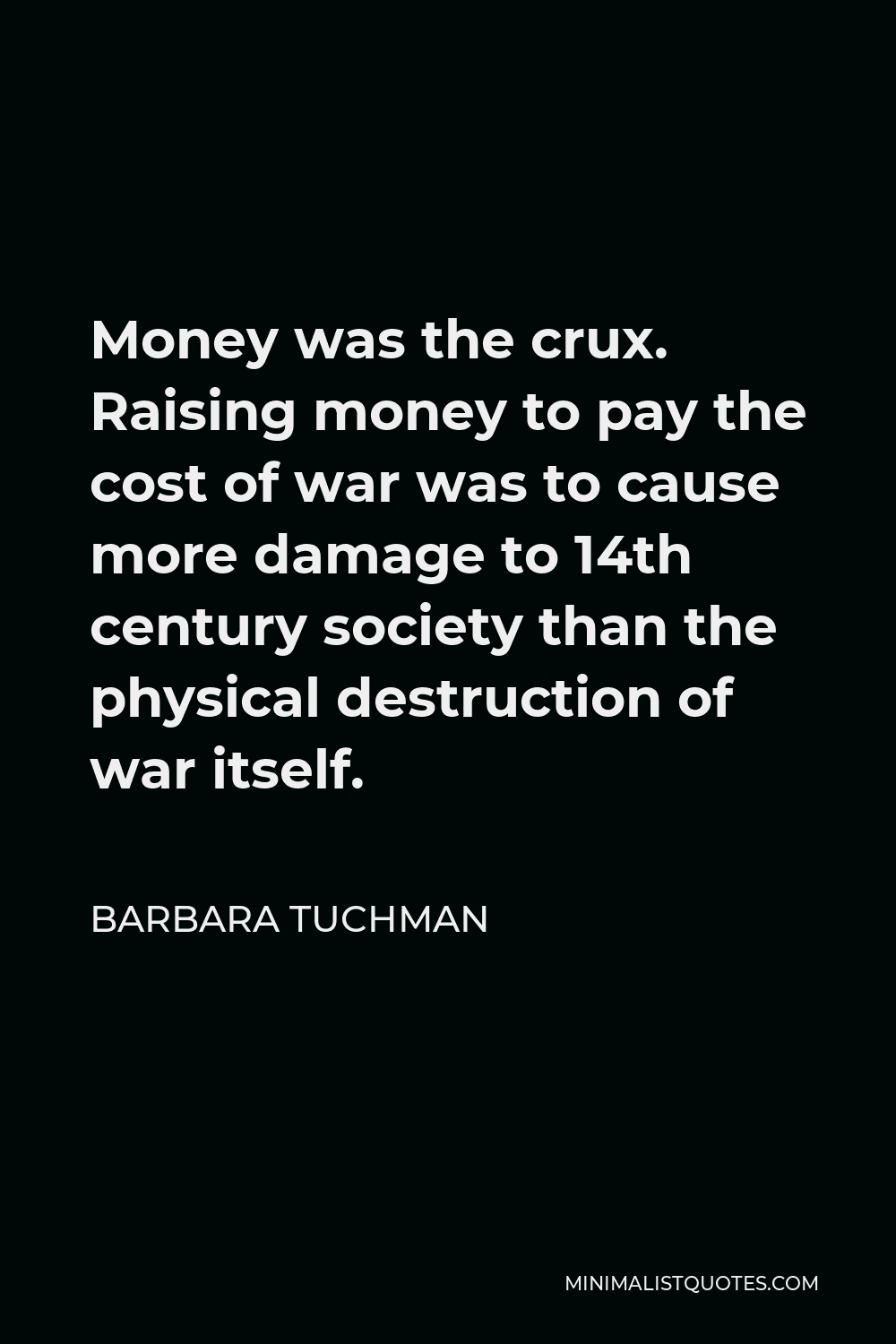
Money was the crux. Raising money to pay the cost of war was to cause more damage to 14th century society than the physical destruction of war itself.
BARBARA TUCHMAN -





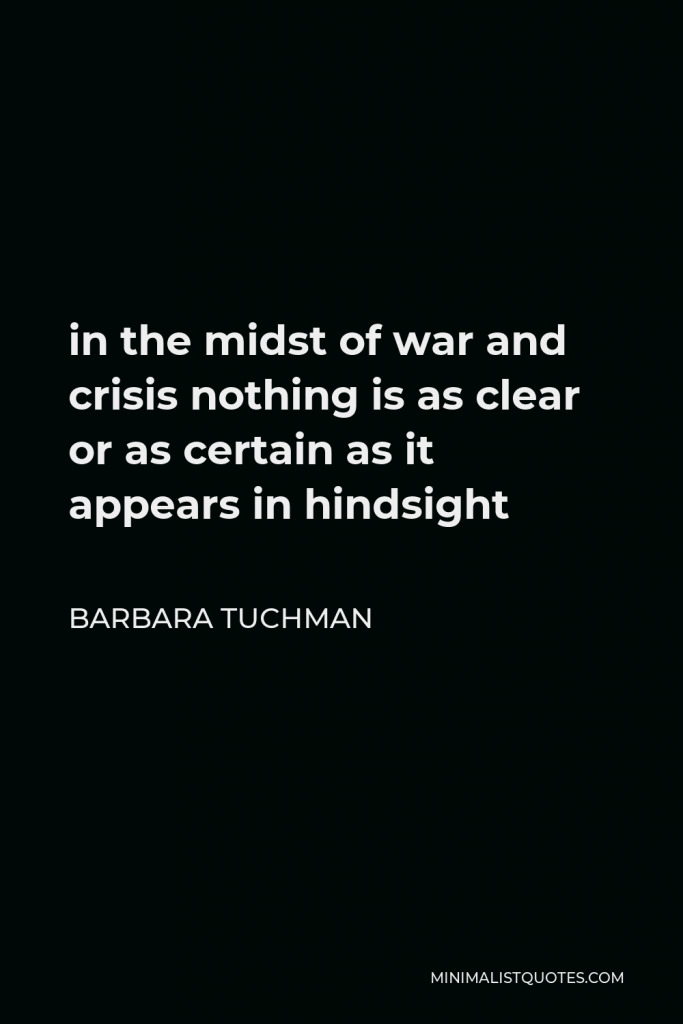

in the midst of war and crisis nothing is as clear or as certain as it appears in hindsight
BARBARA TUCHMAN -





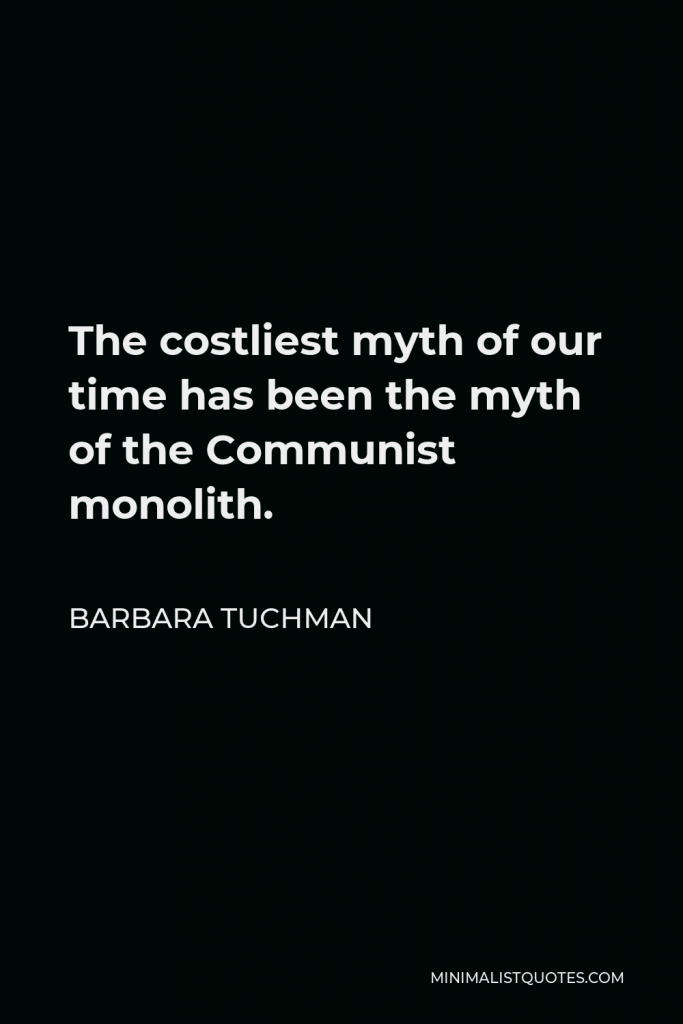

The costliest myth of our time has been the myth of the Communist monolith.
BARBARA TUCHMAN -






Honor wears different coats to different eyes.
BARBARA TUCHMAN -





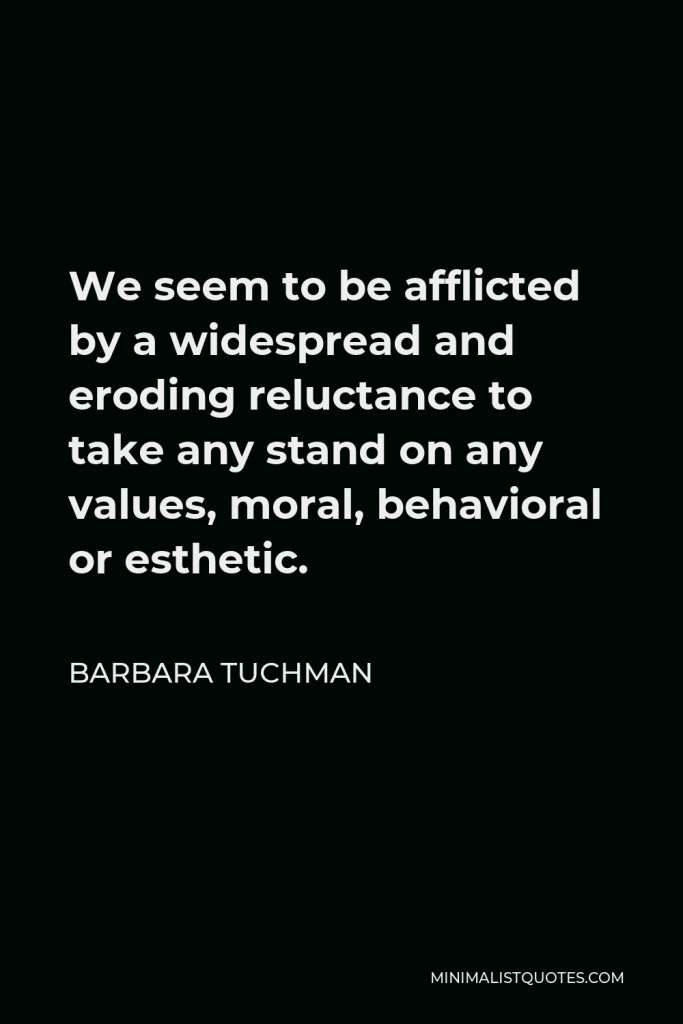

We seem to be afflicted by a widespread and eroding reluctance to take any stand on any values, moral, behavioral or esthetic.
BARBARA TUCHMAN
